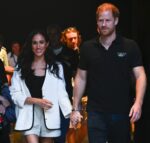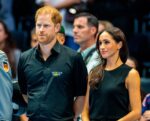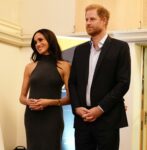Checkout
Top Celebrities
- 50 Cent
- Aaron Carter
- Abigail Clancy
- Academy Awards
- Adam Lambert
- Adam Sandler
- Adnan Ghalib
- Adrian Grenier
- Adriana Lima
- Adrianne Curry
- Adrienne Bailon
- Aida Yespica
- Aisha Tyler
- Aisleyne Horgan-Wallace
- Akon
- Al Gore
- Alaina Alexander
- Alana Curry
- Alec Baldwin
- Aleksandra Jordan
- Alena Seredova
- Alessandra Ambrosio
- Alessia Ventura
- Alex Grace
- Alex Rodriguez
- Ali Larter
- Ali Lohan
- Alicia Keys
- Alina Vacariu
- Allegra Versace
- Alley Bagget
- Alyssa Milano
- Amanda Bynes
- Amanda Harrington
- Amanda Peet
- America Ferrera
- American Idol
- Amy Polumbo
- Amy Winehouse
- Ana Beatriz Barros
- Ana Kournikova
- Anahi Gonzalez
- Andy Dick
- Andy Garcia
- Ang Lee
- Angelina Jolie
- Angie Harmon
- Anna Faris
- Anna Friel
- Anna Kournikova
- Anna Lynne McCord
- Anna Nicole Smith
- Anna Paquin
- Annalynne McCord
- Anne Hathaway
- Anne Heche
- Anthony Hopkins
- Antonella Barba
- Antonio Banderas
- April Scott
- Arnold Schwarzenegger
- Aruna Shields
- Ashanti
- Ashlee Simpson
- Ashley Dupre
- Ashley Greene
- Ashley Olsen
- Ashley Tisdale
- Ashton Kutcher
- Aubrey O'Day
- Audrina Patridge
- Austin Green
- Avril Lavigne
- Bai Ling
- Bam Margera
- Bar Refaeli
- Barack Obama
- Barbra Streisand
- Barron Hilton
- Ben Affleck
- Ben Stein
- Ben Stiller
- Bernie Mac
- Beyonce
- Beyonce Knowles
- Bikini Pictures
- Bill O'Reilly
- Bjork
- Blake Lively
- Bobby Brown
- Bono
- Borat
- Brad Pitt
- Brandon Davis
- Brenda Song
- Bridget Marquardt
- Britney Spears
- Brittany Murphy
- Brittany Snow
- Brody Jenner
- Brook Shields
- Brooke Burke
- Brooke Burns
- Brooke Hogan
- Brooke Shields
- Bruce Willis
- Cameron Diaz
- Camilla Belle
- Candice Michelle
- Caprice Bourett
- Caption Me
- Carmen Electra
- Carrie Prejean
- Carrie Underwood
- Cassie
- Cate Blanchett
- Catherine Zeta-Jones
- Celebrities
- Celebrity Gossip
- Celebrity Pictures
- Celine Dion
- Chad Michael Murray
- Chanelle Hayes
- Charisma Carpetner
- Charlie Sheen
- Charlize Theron
- Cheryl Cole
- Cheryl Tweedy
- Chris Benoit
- Chris Brown
- Chris Tarrant
- Christian Bale
- Christie Binkley
- Christina Aguiera
- Christina Aguilera
- Christina Applegate
- Christina Milian
- Christina Ricci
- Christoper Masterson
- Christopher Walken
- Chuck Nice
- Ciara
- Cindy Crawford
- Cindy Margolis
- Cindy Taylor
- Claudia Schiffer
- Clay Aiken
- Clive Owen
- Coco
- Cory Lidle
- Courteney Cox
- Courtney Cox
- Courtney Love
- Criss Angel
- Cristiano Ronaldo
- Cyndi Lauper
- Dakota Fanning
- Dane Cook
- Dania Ramirez
- Daniel Craig
- Daniel Radcliffe
- Daniel Smith
- Danielle Lloyd
- Danity Kane
- Dannii Minogue
- Danny Boyle
- Dave Navarro
- David Beckham
- David Blaine
- David Faustino
- David Hasselhoff
- David Letterman
- David Spade
- Dean McDermott
- Dean Sheremet
- Debbie Rowe
- Delta Goodrem
- Denise Milani
- Denise Richards
- Dennis Leary
- Diddy
- Dina Lohan
- Diora Baird
- Dita Von Teese
- DJ AM
- DMX
- Don Cheadle
- Don Imus
- Donal Logue
- Donald Trump
- Doug Reinhardt
- Dr Dre
- Drew Barrymore
- Dustin Diamond
- Eddie Murphy
- Edward Norton
- Elin Woods
- Elisha Cuthbert
- Eliza Dushku
- Elizabeth Hurley
- Elle Macpherson
- Ellen Pompeo
- Elton John
- Elyse Umemoto
- Emily Blun
- Emily Osment
- Emily Scott
- Eminem
- Emma B
- Emma Roberts
- Emma Watson
- Emmanuelle Chriqui
- Emmy Rosum
- Erich Schultz
- Erin Wasson
- Eva Green
- Eva Longoria
- Eva Mendes
- Evangeline Lilly
- Fabiana Tambosi
- Farrah Fawcett
- Fat Joe
- Fergie
- Fernanda Tavares
- Flavor of Love
- Foxy Brown
- Freida Pinto
- Gavin Rossdale
- Gemma Atkinson
- George Carlin
- George Clooney
- George Michael
- Gilles Marini
- Gisele Bundchen
- Good Charlotte
- Grey's Anatom
- Guy Ritchie
- Gwen Stefani
- Gwyneth Paltrow
- Hail Gossip Blogs
- Hails Hottie Picks
- Hails Recap
- Haired Pea
- Halle Berry
- Harrison Ford
- Harry Morton
- Harry Potter
- Hayden Panettiere
- Haylie Duff
- Heath Ledger
- Heather Graham
- Heather Locklear
- Heather Mills
- Heidi Klum
- Heidi Montag
- Helena Christensen
- Hilary Duff
- Hilary Swank
- Hillary Clinton
- Holly Madison
- Holly Valance
- Hot Girls
- Hot kiss scene
- Howard K. Stern
- Howard Stern
- Hugh Grant
- Hugh Hefner
- Hugh Jackman
- Hulk Hogan
- Ice Cube
- Iphone
- Irina Shaykhilsamova
- Isaac Cohen
- Isaac Hayes
- Isabel Fontana
- Isaiah Washington
- Ivanka Trump
- Izabel Goulart
- Jack Bauer
- Jack Black
- Jack Nicholson
- Jackie Chan
- Jade
- Jaime Pressly
- Jake Gyllenhaal
- Jakki Degg
- James Blunt
- James Bond
- Jami Miller
- Jamie Foxx
- Jamie Hince
- Jamie Lynn Spears
- Jamie Oliver
- Jamie Pressly
- Jamie-Lynn Sigler
- Jane Fonda
- Jane Olson
- Janet Jackson
- Jaslene Gonzalez
- Jason Filyaw
- Jason Lee
- Jason Lewis
- Jason Mesnick
- Jay-Z
- Jayden
- Jayden James
- Jeff Goldblum
- Jenna Fischer
- Jenna Jameson
- Jennie Garth
- Jennifer Aniston
- Jennifer Ellison
- Jennifer Garner
- Jennifer Hawkins
- Jennifer Hudson
- Jennifer Lopez
- Jennifer Love Hewitt
- Jennifer Morrison
- Jennifer Walcott
- Jenny Frost
- Jenny McCarthy
- Jeremy Piven
- Jermaine Dupri
- Jerry Seinfeld
- Jessica Alba
- Jessica Biel
- Jessica Lowndes
- Jessica Simpson
- Jessica White
- Jessie Jane
- Jewel
- Jim Carey
- Jim Carrey
- Jimmy Fallon
- Joan Rivers
- Joanna Krupa
- Joaquin Phoenix
- Jodie Marsh
- Jodie Sweetin
- Joe Francis
- Joe Jackson
- Joe Simpson
- Joel Madden
- John Cusack
- John Lennon
- John Mayer
- John Ritter
- John Stewart
- John Travolta
- Johnny Depp
- Johnny Fairplay
- Johnson Rocks
- Jojo
- Jolene Blalock
- Jon Gosselin
- Jon Lovitz
- Jonas Brothers
- Jonathan Rhys Meyers
- Jordan
- Jordan Bratman
- Jorge Nunez
- Josh Duhamel
- Josh Hartnett
- Josie Maran
- Joss Stone
- Jude Law
- Julia Roberts
- Julia Stiles
- Julianne Hough
- Juliette Lewis
- Justin Bieber
- Justin Gaston
- Justin Timberlake
- Juveline
- Kaiane Aldorino
- Kaley Cuoco
- Kanye West
- Kardashian
- Kari Ann Peniche
- Karina Smirnoff
- Karolina Kurkova
- Kate Beckinsale
- Kate Bosworth
- Kate Gosselin
- Kate Hudson
- Kate Moss
- Kate Winslet
- Katharine Mcphee
- Katherine Heigl
- Katherine McPhee
- Kathy Hilton
- Katie Downes
- Katie Holmes
- Katie Lohmann
- Katie Price
- Katie Rees
- Katy Perry
- Ke$ha
- Keanu Reeves
- Keeley Hazell
- Keira Knightley
- Keisha Buchanan
- Keith Richards
- Keith Urban
- Kelly Bensimon
- Kelly Brook
- Kelly Clarkson
- Kelly Osbourne
- Kelly Pickler
- Kelly Ripa
- Kelly Rutherford
- Kendra Jade
- Kendra Wilkinson
- Keri Russell
- Kerri Kasem
- Kevin Costner
- Kevin Federline
- Khloe Kardashian
- Kiefer Sutherland
- Kim Kardashian
- Kimberly Stewart
- Kimora Lee Simmons
- Kingston
- Kirsten Dunst
- Kobe Bryant
- Kourtney Kardashian
- Kristanna Loken
- Kristen Bell
- Kristen Dalton
- Kristen Stewart
- Kristin Cavallari
- Kristin Davis
- Kristy Swanson
- Kurt Cobain
- Kylie Minogue
- L.L. Cool J
- Lacey Chabert
- Lady GaGa
- Lance Bass
- Larry Birkhead
- Larry King
- Larry Rudolph
- Laura Prepon
- Lauren Conrad
- Lauren Hutton
- Lauren Nelson
- Laurence Fishburne
- Leann Rimes
- Lee Ann Rimes
- Leelee Sobieski
- Leighton Meester
- Leo DiCaprio
- Leona Lewis
- Leonardo DiCaprio
- Leticia Cline
- Lil Wayne
- Lilly Allen
- Lily Allen
- Lindsay Lohan
- Lindsey Vonn
- Lionel Richie
- Lisa Gleave
- Lisa Loeb
- Lisa Marie Scott
- Lisa Ray
- Lisa Rhinna
- Lisa Snowdon
- Liv Tyler
- Lori Loughlin
- Louise Redknapp
- Lucie Silvas
- Lucy Liu
- Lucy Pinder
- Luke Wilson
- Maddox
- Madonna
- Maggie Gyllenhaal
- Mandy Moore
- Marcia Cross
- Maria Menounos
- Maria Sergeyeva
- Mariah Carey
- Mario Lopez
- Marisa Miller
- Marisa Tomei
- Mark Wahlberg
- Mary J. Blige
- Mary-Kate Olsen
- Mary-Louise Parker
- Maryse Ouellet
- Matt Damon
- Matt Lauer
- Matthew McConaughey
- Matthew Perry
- May Andersen
- McShane
- Meg Ryan
- Meg White
- Megan Fox
- Meghan McCain
- Mel Gibson
- Melania Knauss
- Melanie Brown
- Mena Suvari
- Michael Douglas
- Michael Jackson
- Michael Moore
- Michelle Marsh
- Michelle McCool
- Michelle Obama
- Michelle Rodriguez
- Michelle Trachtenberg
- Michelle Williams
- Mick Jagger
- Mike Tyson
- Mila Kunis
- Miley Cyrus
- Milo Ventimiglia
- Minka Kelly
- Miranda Kerr
- Mischa Barton
- Miss Nevada
- Miss Universe 2010
- Moby
- Monica Bellucci
- Morgan Freeman
- Movies
- Myleene Klass
- Nadine Velasquez
- Nadya Suleman
- Naomi Campbe
- Naomi Watts
- Nas
- Natalie Maines
- Natalie Portman
- Natasha Bedingfield
- Natasha Henstridge
- Natasha Richardson
- Neha Dhupia
- new gossips
- new movie
- New York Yankees
- Nick Carter
- Nick Jonas
- Nick Lachey
- Nicky Hilton
- Nicolas Cage
- Nicole Eggert
- Nicole Kidman
- Nicole Richie
- Nicole Scherzinger
- Nicolette Sheridan
- Nikki Ziering
- Nipple Slip
- Notorious B.I.G.
- Octomom
- Odette Yustman
- OJ Simpson
- Olga Kurylenko
- olivi
- Olivia Mojica
- Olivia Munn
- Olivia Newton John
- Olivia Wilde
- Oprah
- Orlando Bloom
- Orlando Brown
- Oscar de la Hoya
- Oscars
- Owen Wilson
- Pamela Anderson
- Paris Hilton
- Patricia Arquette
- Patrick Dempsey
- Patrick McDermott
- Patrick Swayze
- Paul Oakenfold
- Paul Rudd
- Paul Walker
- Paula Abdul
- Penelope Cruz
- Perez Hilton
- Pete Doherty
- Pete Wentz
- Peter Andre
- Peter Facinelli
- Peter Greene
- Petra Nemcova
- Phil Collins
- Phoebe Price
- Pink
- Piper Perabo
- Polls
- Primetime Emmys
- Prince Harry
- Princess Beatrice
- Queen Elizabeth
- Queen Latifah
- R. Kelly
- Rachael Ray
- Rachel Bilson
- Rachel Hunter
- Rachel Stevens
- Rachel Uchitel
- Rachelle Lefevre
- Randy Quaid
- Ray J
- Reese Witherspoon
- Renee Olstead
- Renee Zellweger
- Richard Lugner
- Richie Sambora
- Ricky Gervais
- Rihanna
- Rima Fakih
- Rob Schneider
- Robbie Williams
- Robert Pattinson
- Ron Jeremy
- Rosario Dawson
- Rosie Huntington
- Rosie Odonnell
- Roxanne Pallet
- Rumer Willis
- Russell Brand
- Russell Crowe
- Ryan Phillippe
- Ryan Seacres
- Sacha Baron Cohen
- Sadie Frost
- Salma Hayek
- Samantha Ronson
- Samia Smith
- Samuel L. Jackson
- Sandee Westgate
- Sandra Bullock
- Sanjaya
- Sara Foster
- Sarah Harding
- Sarah Jessica Parker
- Sarah Michelle Gellar
- Sarah Shahi
- Sarah Silverman
- Scarlett Johansson
- Scientology
- Sean Penn
- Sean Preston
- Selena Gomez
- Selita Ebanks
- Selma Blair
- sex tape
- Shakira
- Shana Prevette
- Shanna Moakler
- Shaquille O'Neal
- Sharon Stone
- Shauna Sands
- Shawn Johnson
- Shenae Grimes
- Sheryl Crow
- Shia LaBeouf
- Shiloh Nouvel Pitt
- Shyamali Malakar
- Sienna Miller
- Simon Cowell
- Sin City
- Sofia Vergara
- Sonam Kapoor
- Sophie Monk
- South Park
- Stacy Dash
- Stacy Keibler
- Star Jones
- Stavros Niarchos
- Steve Irwin
- Steve O
- Steven Spielberg
- Suge Knight
- Sunny Leone
- Suri Cruise
- Susan Boyle
- Sutton Pierce Federline
- Sylvester Stallone
- T.I.
- Tailor Made
- Tania Zaetta
- Tara Conner
- Tara Elizabeth Conner
- Tara Elizabeth Connor
- Tara Reid
- Tatu
- Taylor Lautner
- Taylor Momsen
- Taylor Swift
- Team Bill
- Ted Hughes
- Tera Patrick
- Teresa Palmer
- Teri Harrison
- Teri Hatcher
- The Dark Knight
- The Game
- The Morning Quicky
- Tiffany Taylor
- Tiger Woods
- Tila Tequila
- Tobey Maguire
- Tom Arnold
- Tom Brady
- Tom Cruise
- Tom Hanks
- Tommy Lee Jones
- Tony parker
- Tori Spelling
- Travis Barker
- Tricia Helfer
- Tyler Perry
- Tyra Banks
- Uffie
- Uma Thurman
- Usher
- Vanessa Hudgens
- Vanessa Marcil
- Vanessa Minnillo
- Victoria Beckham
- Victoria Justice
- Victoria Silvstedt
- Vida Guerra
- Vin Diesel
- Vince Vaughn
- Virginia Tech
- Website News
- Weird Al
- Wesley Snipes
- Whitney Houston
- whitney Port
- Whoopi Goldberg
- Will Ferrell
- Willem Defoe
- Wilmer Valderrama
- Winona Ryder
- Woody Harrelson
- Woody Harrison
- Yesica Toscanni
- YouTube
- Yukie Kawamura
- Zac Efron
- Zachery Ty Bryan
- Zooey Deschane
Dunlop: Britain should admit that we miss charismatic Prince Harry
Author: | Filed under: CelebritiesTessa Dunlop is one of the few royal historians/commentators who refuses to adhere to the strict royal propaganda line. Dunlop has been, at times, critical of King Charles and Prince William, and the Sussexes as well. She’s one of only a handful of historians who actually understands that the current royal estrangements are horrible for the Windsors and for Britain. On Prince Harry’s birthday, Dunlop wrote this piece for the Independent: “Harry at 40 might miss Britain, but the uncomfortable truth is we may miss him more.” As in… the Windsors’ and British media’s obsession with Harry is pretty obviously about how everything fell apart for that family when the charismatic ginger prince left. Some highlights from Dunlop’s piece:
The first Invictus Games in 2014: In front of a 2 million-strong television audience, alchemist Harry had successfully melded the disarming qualities of his late mother with royalty’s powerful service platform. The effect was electric. The closing ceremony of those first Games coincided with his thirtieth birthday, when he “danced, sang and celebrated being alive.” Proof, if any were needed, that Harry was born to serve.
The Sussexes’ royal tours: It’s the duke’s aptitude for service that’s the main stumbling block for those who remain on the other side of the Atlantic. Royal stalwarts huff and puff about Harry’s hypocrisy; how dare the duke steer his ship into the rocky waters of Nigeria and Columbia, when he complains Britain, minus security, is unsafe for his young family. (Alongside the service gene comes a heft of entitlement, another hallmark of royalty.) But Harry’s princely expectations should not detract from his achievements: whether people like it or not, together with his savvy duchess, the Sussexes cut a dash in countries long resistant to Britain’s privileged royal brand. The then Cambridge’s 2022 Caribbean tour doesn’t bear comparison. The bitter note in Britain’s coverage of the Sussexes’ ‘DIY royal tours’ speaks for itself. Long may we wonder if Harry misses Britain, anything rather than invert the question and admit Britain misses Harry.
Harry always had more rizz than William: Always the more charismatic of the two, a new-age Harry, comfortable in his own skin, joshing with the kids in Colombia, is jarring for William. Even now, when a Cold War keeps the two siblings apart, the Prince of Wales finds himself inadvertently playing catch-up with little brother Harry. It was the duke who first defied royal rules to sport a stubbly beard, and long before Kate’s sumptuous, scripted recovery film, it was Harry and Meghan who produced heavily curated versions of their healing journeys.
The Sussexes understand the zeitgeist: The couple’s infuriating knack of identifying the zeitgeist and running with it, has kept Sussexes in the headlines, that’s why we tune into their effortless overseas spectacles and pour over the minutiae of their lives. When it comes to being royal – a toxic cocktail of privilege, service and celebrity – the Sussexes have nailed it. Back in Britain that hurts.
Charles must take the lead on reconciliation: Charles knows his reign is not for the long term and must now take the lead when it comes to mending father-son fences. It is one thing to feel threatened by a sibling, quite another by a child. That Charles does not like to be upstaged is yet another reason for him to make the first move. Wearing the mantle of kingship, as England’s Defender of the Faith, Charles can’t busk his reputation on man-hugs with rugby players and simultaneously leave a gaping wound at home. Time is of the essence…[In] Harry’s relationship with Charles, he’ll always be the child, and in his forties will continue to behave like one. In this royal equation, the King, as a parent, bears the brunt of responsibility. Ten years ago, Charles was proud of his ‘darling boy’. Today, he may wish him well, but he must dig deeper and find a vestige of that pride once more.
They need Harry’s fairy dust: Redemption and forgiveness are powerful forces in our fractious world, likewise the embrace of difference. The King sits on the British throne, there is no greater stage in the United Kingdom. To reach out and reconnect with Harry, who has forged a different path with his birthright, would inadvertently win back some of the Duke’s fairy dust for Britain. But the King must make the first move. Harry has another forty years in front of him, and even William may be glad of the day when his brother is not constantly cast in opposition to the royal family.
I just appreciate it when, after all of the ink spilled about “Harry must apologize” and “why isn’t Harry coming back” and “Harry must be so jealous of William and Kate’s awful video,” there’s at least one British person stating the obvious. That Charles and William are sick with jealousy over Harry’s life and success, that they’re mad that he took his star power far away from them, that Harry makes his father and brother look like charisma-vacuums. Britain does miss Harry. The Windsors were also slow to realize that Harry was the one keeping the whole sorry thing relevant.










Leave a reply